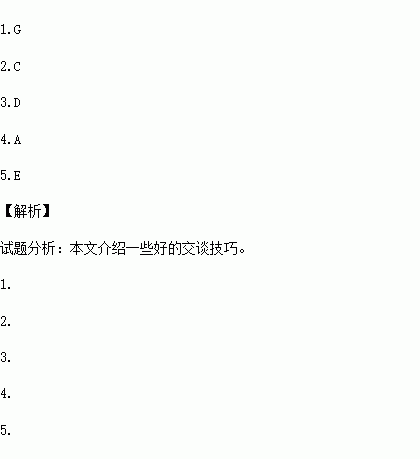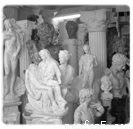题目内容
阅读七选五
Some people make you feel comfortable when they are around. You spend an hour with them and feel as if you have known them half your life. 1.
Here are several skills that good talkers have. If you follow the skills, they'll help you put people at their ease, and make friends with them quickly.
First of all, good talkers ask questions. _2. One wellknown businesswoman says, “At business lunches, I always ask people what they did that morning. It's a common question, but it will get things going.” From there you can move on to other matters — sometimes to really personal questions. 3. Second, once good talkers have asked questions, they listen to the answers. This point seems clear, but it isn't. Your questions should have a point and help to tell what sort of person you are talking to. And to find out, you really have to listen carefully and attentively.
_4. If someone sticks to one topic, you can take it as a fact that he's really interested in it. Real listening also means not just listening to words, but to tones of voice. If the voice sounds dull, then, it's time for you to change the subject.
Finally, good talkers know well how to deal with the occasion of parting. If you're saying goodbye, you may give him a firm handshake and say, “I've really enjoyed meeting you.” 5. Let people know what you feel, and they may walk away feeling as if they've known you half their life.
A.Real listening at least means some things.
B.You can become a popular person.
C.Almost anyone, no matter how shy he is, will answer a question.
D.And how he answers will let you know how far you can go.
E.If you want to see that person again, don't keep it a secret.
F.It's polite to listen to others with a smile.
G.These people have something in common.



